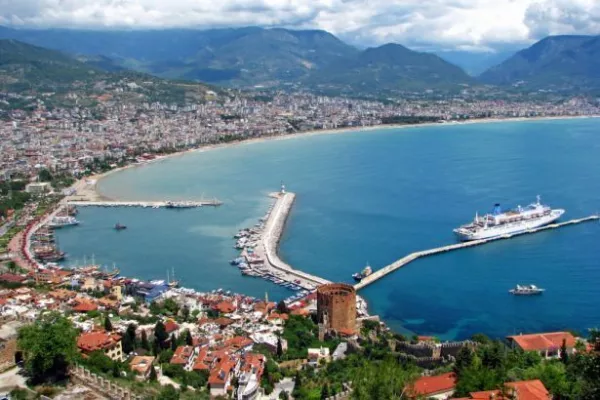Europeans will carry on travelling largely as normal following this week’s terrorist attacks in and around Barcelona, according to TUI, the region’s biggest holiday company.
Faced with a choice of making drastic changes to their lives or learning to live with the heightened security threat, the majority of people, travelers included, appear resolved to carry on as before, TUI Chief Executive Officer Fritz Joussen said in an interview.
“I don’t think that there will be an impact,” Joussen said of the events in Spain, which began when a van plowed into pedestrians in Barcelona’s iconic Las Ramblas area and killed 15 people. “Every attack is horrific, but they are a phenomenon of our time -- in Berlin, in Paris, in London, in Brussels and now in Barcelona. It’s a matter of fact. Every other week you see something.”
While TUI and rival tour operators such as Thomas Cook Group Plc had to cope with major changes in travel habits in the wake of the first attacks in Europe claimed by so called Islamic State, the level of dislocation has decreased with each one. People are now “normalizing” the level of danger from terrorism into their lives, as compared with the risk of a road accident on the way to the airport, for example, Joussen said.
“Most people are saying I won’t change my behavior,” he said. “Football games are part of my life, concerts are part of my life, going shopping on Las Ramblas is part of my life, traveling is part of my life. That’s what I see after three or four years of attacks.”
Egypt Rebound
British Airways reported no discernible dip in bookings after the UK suffered three incidents that claimed 34 lives this year, while Deutsche Lufthansa AG says demand has withstood deaths including a dozen in a truck attack in Berlin last Christmas, with a recovery in the sensitive U.S. and Asian markets. Sales fell more in late 2015 and 2016 after 240 died in Paris, Brussels and Nice.
Terrorism targeting beach resorts has had a clearer effect on tourism, with a 2015 attack in Tunisia that killed 38 mainly TUI customers effectively closing down the nation’s holiday sector. Spain, Greece and other European locations benefited as capacity was shifted away, and are likely to remain an easier sell than north Africa, Joussen said, though even there demand is recovering.
Egypt has become one of TUI’s fastest growing markets. Only the UK now bans flights to Sharm el-Sheikh, which was declared off limits after the suspected bombing of a departing plane in 2015. Meanwhile, Tunisia might return to the company’s offering as demand mounts and warnings are lifted.
Turkey is also a recovery story, the CEO said, with TUI set to lift capacity next summer after holding it steady this year. While visits fell to about 1 million western Europeans from 1.8 million following a spate of attacks, numbers are being supplemented by as many as 400,000 Russians after the lifting of a travel curbs imposed over the shooting down of a Sukhoi jet over Turkey, he said. Germans are also returning, mainly in the late-bookings market.
TUI remains optimistic about the UK, where price increases appear to have stuck after being introduced to help offset the impact of a weaker pound following last year’s Brexit vote.
“People got used to it,” Joussen said. “For next summer we see very resilient booking patterns. It’s very early days but it looks promising.” Group-wide, demand levels are no longer the main concern. “A year ago we were thinking, do we have too much capacity? Now we’re wondering if we have enough.”
News by Bloomberg - edited by Hospitality Ireland









